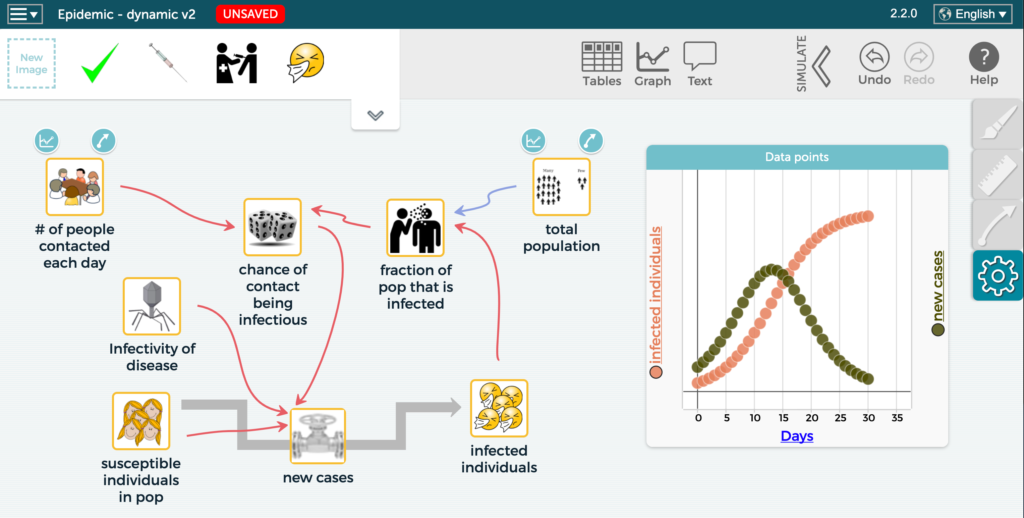Understanding responses to the current COVID-19 pandemic and solving other pressing global and local problems requires the ability to develop and use models and apply both system thinking and computational thinking. The Next Generation Science Standards (NGSS) include systems and system models as one of the crosscutting concepts, and developing and using models and using computational thinking as two of the science and engineering practices.
However, the sudden move to remote learning due to the pandemic has disrupted classrooms and threatened advances in incorporating NGSS three-dimensional teaching in classrooms across the country. Teachers no longer have access to a physical lab space to engage students in exploration of phenomena, and learning to teach science in this new environment has been challenging for many teachers. Further, many educational tools were not designed to facilitate peer interactions in a remote learning context or to engage students in making sense of phenomena.
A new project funded by the National Science Foundation is researching how best to support teachers in continuing to offer high-quality 3D science teaching that aligns to the vision of A Framework for K-12 Science Education. The project builds on current work at the Concord Consortium and the CREATE for STEM Institute at Michigan State University. We have developed the free web-based SageModeler system modeling tool and supporting materials to help teachers incorporate modeling, system thinking, and computational thinking in their classrooms.

SageModeler model of an epidemic with predicted outcomes (graph) based on model inputs.
SageModeler runs in a web browser, does not require installation or login, and bandwidth requirements are low, so it is well primed for uptake in remote learning scenarios that include access to computers and the Internet. SageModeler is available in English, Spanish, Chinese, Turkish, Hebrew, German, Greek, and Norwegian.
The goal of this one-year project is to develop a principled approach for remote professional learning around 3D teaching and study what works for engaging teachers in the complexities of teaching remotely with open-ended modeling tools to support student growth in modeling, system thinking, and computational thinking.
We will offer virtual professional learning workshops to teachers in Michigan and New York City from STEM Teachers of New York City, Inc. We will research best practices for supporting teachers in remote professional learning around modeling, develop design guidelines for the creation of NGSS-aligned curricula that supports students’ system thinking and computational thinking through modeling, and explore student learning.
2 thoughts on “New project to help teachers use open-ended tools aligned with goals of NGSS”
Comments are closed.
Very interesting project! Wondering if you’re looking for remote collaborators. If so, please let me know.
Hi Terry,
Thanks for your interest! For this new project, we are partnering with teachers in Michigan and New York. SageModeler is available for free (sagemodeler.concord.org), and you’re welcome to try it with your own students. You can also find an Introduction to Modeling activity and other free curriculum resources at learn.concord.org/building-models. We occasionally offer professional learning opportunities for a wider audience and hope to be able to do at NSTA in 2021, for example. For more information, feel free to contact us at sagemodeler@concord.org Thanks!